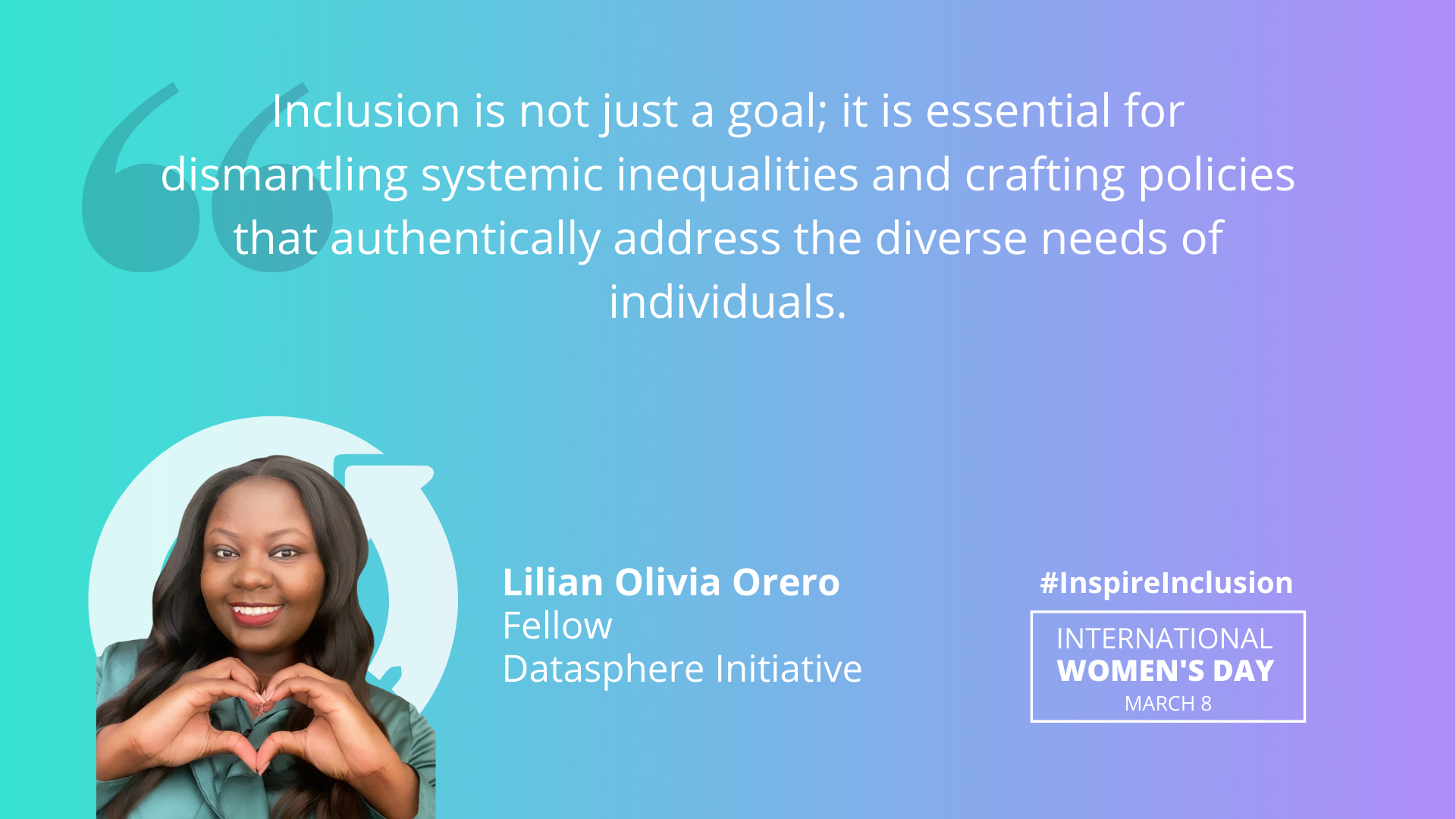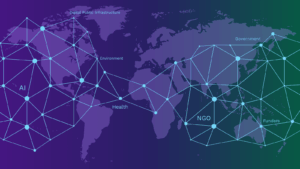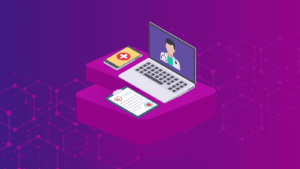On the occasion of International Women’s Day and its 2024 theme #InspireInclusion, the Datasphere Initiative spoke to inspiring women working on different aspects of data governance to ask them why inspiring inclusion is important in policy and technical approaches to unlocking the value of data, and the actions they are taking to ensure inclusion in how data is used, managed and governed.
Lilian Olivia Orero, Founder of SafeOnline Women Kenya (SOW-Kenya) and Fellow at the Datasphere Initiative, shared her perspectives and identified specific actions that can be taken.
Read more about the campaign and other contributions here.
In policy and technical approaches to unlocking the value of data, inclusion is paramount. My experience as the Founder of SafeOnline Women Kenya (SOW-Kenya) revealed the critical role inclusion plays in addressing issues like cyberbullying faced by women. The absence of stringent data protection laws and inadequate representation exacerbated these challenges.
Inclusion ensures accurate, representative data, shedding light on the severity of issues overlooked or underestimated without diverse perspectives. Advocating for policy changes, I faced resistance due to the lack of concrete, representative data, emphasizing the crucial link between inclusion and effective policymaking.
The #InspireInclusion initiative aligns with my commitment, stressing the need for equitable, inclusive, and ethically collected data. Inclusion is not just a goal; it is essential for dismantling systemic inequalities and crafting policies that authentically address the diverse needs of individuals.
Leveraging the relationship between African women and the data and digital agendas is pivotal in ongoing policy processes like the G20. Historically, African women, especially those from marginalized backgrounds, have been inadequately represented in data sets, creating significant gaps in understanding their unique experiences with cyberbullying and online safety. Actively involving them in data collection efforts becomes essential to bridge this gap and ensure accurate representation. In the context of the G20, recognizing and incorporating the perspectives of African women is crucial for crafting comprehensive and effective global policies. Their inclusion in the data and digital agendas facilitates a nuanced understanding of the challenges they face, contributing to the formulation of more targeted and equitable policies. This relationship empowers African women by acknowledging their diverse experiences, creating a foundation for policies that resonate with their realities. Ultimately, leveraging the connection between African women and the data and digital agendas in the G20 processes is not just an imperative for inclusivity but a strategic necessity to address the specific challenges faced by these women and foster a safer, more equitable global digital space.
Within SafeOnline Women Kenya (SOW-Kenya), I have actively addressed the data representation gap in women’s experiences with cyberbullying. Recognizing the inadequacy of existing data sets, especially for marginalized women, I initiated targeted surveys and community engagements. These efforts aimed to collect firsthand data directly from marginalized groups, ensuring their voices shape discussions and policies on online safety. Collaborating with local organizations and community leaders, I amplified these marginalized voices in policy discussions. This inclusive approach led to a more comprehensive representation of women’s experiences in the collected data. Additionally, I have actively partnered with community groups advocating for women’s digital safety. Through workshops, events, and awareness campaigns, I have empowered women to navigate online spaces safely. The “16daysofActivism” campaign, conducted in collaboration with universities, addressed cyberbullying and online harassment. It included educating women on online safety measures, running a social media campaign using impactful stories, and organizing a public forum engaging community leaders and policymakers. These collective efforts have not only raised awareness but influenced local authorities to consider policies addressing cyberbullying and promoting safer online spaces for women, showcasing the impact of inclusive data representation.
Lilian Olivia Orero is the Founder of SafeOnline Women Kenya (SOW-Kenya), Datasphere Initiative Fellow, Gender & Technology Lawyer, and Advocate of the High Court of Kenya.




